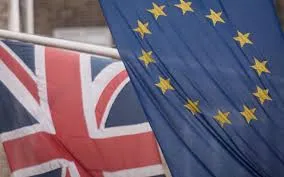Keeping it together at the Unified Patent Court
October 11, 2016
Is there a way out of the deadlock created by the Brexit vote and can the Unitary Patent system still go live next year as planned? According to Wouter Pors, partner of Bird & Bird in The Hague, industry clearly prefers a UP system including the UK and attempts are being made to convince the UK to ratify the UPC Agreement (UK ratification is needed in order for the system to launch). In this guest post for the Kluwer Patent Blog he writes: ‘The idea seems to be that individual UPC Contracting Member States should give the UK comfort that they will support a solution that will allow the UK to remain a UPC member in the long run.’
By Wouter Pors
The outcome of the Brexit referendum has sent a shock wave through Europe. It is still unclear what the UK will do exactly. It seems that the new Brexit ministry isn’t completely staffed yet and it may still take some time before there will be clear statements. Prime Minister Theresa May has now said that the UK will trigger the Article 50 procedure by the end of March 2017, but it is not clear what this exactly means. It is assumed however that it at least means that the UK will be an EU Member State until at least spring 2019.
In a presentation for the EU Competitiveness Council on 29 September, Preparatory Committee Chair Alexander Ramsay and Select Committee Chair Jérôme Debrulle presented their fifth progress report, informing the Council that both the preparations for the Unitary Patent and the Unified Patent Court are basically completed now and the Court could open for business early 2017. Rumour has it that the opening date could be 2 May 2017.
In the meantime, the second course of basic education for future UPC judges was completed in Budapest on 23 September with a mock trial. Just like the first group in early 2015, this second group consisted of highly motivated judges from various countries, keen to learn all the details of patent law. Even during the breaks I was challenged with in-depth questions on patent law intricacies.
In the weeks leading up to the Competitiveness Council meeting a number of industry organisations wrote letters urging the Member States to save the UPC system. Business Europe in a letter of 26 September said that it “calls on the Competitiveness Council to voice political support for the objective of going forward with the project and finding a mechanism to retain the UK in the system that remains sustainable even after the Brexit”. Also, Business Europe said the system should go live in 2017 as planned. Although Business Europe doesn’t mention how this should be achieved, it is clear that this can only be done in one way, namely by the UK ratifying the UPC Agreement preferably this year. That would provide a temporary solution until Spring 2019, but of course there would also need to be a more definitive solution. This cannot be achieved right now and therefore the idea seems to be that individual UPC Contracting Member States should give the UK comfort that they will support a solution that will allow the UK to remain a UPC member in the long run. How this could be achieved from a legal perspective has already been discussed in various publications and opinions, all published on the internet (including this blog).

The message from US companies and practitioners clearly is that the UPC would be less attractive without the UK. Patent law is a global playing field in which the US, Europe and Asia are the main regions and direct competitors. It does seem to be in the best interest of Europe if the UPC covers the largest possible territory; at least this seems to be a clear industry position. It’s now for the Member States to deal with the issue.
For regular updates on the Unitary Patent and the Unified Patent Court, subscribe to this blog and the free Kluwer IP Law Newsletter.
You may also like















D.X. Thomas
It is slowly getting annoying that always the same persons having vested interests in the UPC come up like Tibetan prayer mills and advocate a quick ratification by the UK. When according to the British prime minister primacy of EU law should come to an end in Britain, any reasonable person would think that a participation of UK is not on the cards, be it before or after the Brexit procedure has been officially started. No supremacy of EU Law, no UK participation in the UPC. Participation of the UK would have been good, but political reality has superseded any hopes in that respect. The political situation does not look in favour of a quick ratification before the actual Brexit. How long will it take for it to sink in?